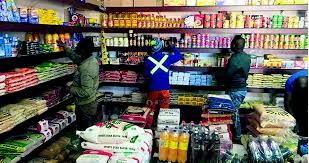Tough times for retail sector workers as distorted exchange rates threaten viability
By Own Correspondent
JOB cuts are ensuing in the retail sector following alarm recently raised by the Retailers Association of Zimbabwe (RAZ) to the effect that if obtaining exchange rates distortions are not addressed there is a high risk of company closures.
The retail sector currently employs about 50 000 employees across the nation.
The outcry comes as the ZWG has lost most of its value since its inception on April 5 2024. The local unit first traded at US$13,68 against the greenback with the parallel market rates maintaining almost a similar range during the early days.
However, exchange rates are now hovering in excess of US$1:ZWG 32 on the parallel market sending most prices of basic commodities on a haywire.
The central bank recently unveiled a cocktail of measures aimed at supporting the local currency on the back of announcements that US$64 million was injected in September alone on the Interbank Market to mop up excess ZWG liquidity and ultimately nip the spiralling exchange rates in the bud.
But the Retailers Association of Zimbabwe which includes OK, TM Pick n Pay and Halsteads bemoaned the higher than ZWG13,80 official exchange rate peg being imposed by suppliers.
The grouping on their part said the suppliers were also blaming acute foreign currency shortages on the official market.
The association said Schweppes for instance was selling Mazoe Orange Crush at US$3,48 or ZWG74,70 equivalent to a rate of US$1:ZWG21,45. Willowton is selling D’Lite Cooking Oil 2 litres at US$2,89 or ZWG67,08 equivalent to an implied rate of ZWG23,21.
Colcom Countrystyle 500g pegged at US$3,98 is being sold at ZWG119,85 or an implied rate of ZWG30,11.
Resultantly, the retailers said they are selling such products at a loss margin ranging between 10% to 48%.
“Suppliers of goods and services into the formal retail sector are now maintaining two-tier price lists for local currency and another for foreign currency- whose implied rates are way higher than the obtaining Official Exchange rate based on the banking systems Willing Seller Willing Buyer platform.
“Manufacturers and distributorship suppliers are using variable exchange rates depending on their source of foreign currency while suppliers have the flexibility of adopting variable exchange rates, formal retailers are mandated to use WBWS official exchange rate currently pegged at ZiG14,80 to USD, thereby exposing retailers to massive losses,” the retailers’ group said.








Leave a comment